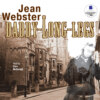Read the book: «The Four-Pools Mystery», page 9
CHAPTER XVII
WE SEARCH THE ABANDONED CABINS
"Now," said Terry, as Solomon and the suitcase disappeared upstairs, "let's you and I have a look at those haunted cabins."
"I thought you were hungry!"
"Starving—but I still have strength enough to get that far. Solomon says supper won't be ready for half an hour, and we haven't half an hour to waste. I'm due in the city the day after to-morrow, remember."
"You won't find anything," I said. "I've searched every one of those cabins myself and the ha'nt didn't leave a trace behind him."
"I think I'll just glance about with my own eyes," laughed Terry. "Reporters sometimes see things, you know, where corporation lawyers don't."
"Just as you please," I replied. "Four-Pools is at your disposal."
I led the way across the lawn and into the laurel growth. Terry followed with eyes eagerly alert; the gruesome possibilities of the place appealed to him. He pushed through the briars that surrounded the first cabin and came out on the slope behind, where he stood gazing down delightedly at the dark waters of the fourth pool.
"My word! This is great. We'll run a half-page picture and call it the 'Haunted Tarn.' Didn't know such places really existed—thought writers made 'em up. Come on," he called, plunging back to the laurel walk, "we must catch our ghost; I don't want this scenery to go to waste."
We commenced at the first cabin and went down the row thoroughly and systematically. At Terry's insistence one of the stable men brought a ladder and we climbed into every loft, finding nothing but spiders and dust. The last on the left, being more weatherproof than the others, was used as a granary. A space six feet square was left inside the door, but for the rest the room was filled nearly to the ceiling with sacks of Indian meal.
"How about this—did you examine this cabin?"
"Well, really, Terry; there isn't much room for a ghost here."
"Ghosts don't require much room; how about the loft?"
"I didn't go up—you can't get at the trap without moving all the meal."
"I see!" Terry was examining the three walls of sacks before us. "Now here is a sack rather dirtier than the rest and squashy. It looks to me as if it had had a good deal of rough handling."
He pulled it to the floor as he spoke, and another with it. A space some three feet high was visible; by crawling one could make his way along without hitting the ceiling.
"Come on!" said Terry, scrambling to the top of the pile and pulling me after him, "we've struck the trail of our ghostly friend unless I'm very much mistaken.—Look at that!" He pointed to a muddy foot-mark plainly outlined on one of the sacks. "Don't disturb it; we may want to compare it with the marks in the cave.—Hello! What's this? The print of a bare foot—that's our friend, Mose."
He took out a pocket rule and made careful measurements of both prints; the result he set down in a note book. I was quite as excited now as Terry. We crawled along on all fours until we reached the open trap; there was no trace here of either spider-webs or dust. We scrambled into the loft without much difficulty, and found a large room with sloping beams overhead and two small windows, innocent of glass, at either end. The room was empty but clean; it had been thoroughly swept, and recently. Terry poked about but found nothing.
"H'm!" he grunted. "Mose cleaned well.—Ah! Here we are!"
He paused before a horizontal beam along the side wall and pointed to a little pile of ashes and a cigar stub.
"He smokes cigars, and good strong ones—at least he isn't a lady. Did you ever see a cigar like that before?"
"Yes," I said, "that's the kind the Colonel always smoked—a fresh box was stolen from the dining-room cupboard a day or so after I got here. Solomon said it was the ha'nt, but we suspected it was Solomon."
"Was the cupboard unlocked?"
"Oh, yes; any of the house servants could have got at it."
"Well," said Terry, poking his head from the windows for a view of the ground beneath, "that's all there seems to be here; we might as well go down."
We boosted up the two meal bags again, and started back toward the house. Terry's eyes studied his surroundings keenly, whether for the sake of the story he was planning to write or the mystery he was trying to solve, I could only conjecture. His glance presently fixed on the stables where old Uncle Jake was visible sitting on an upturned pail in the doorway.
"You go on," he ordered, "and have 'em put dinner or supper or whatever you call it on the table, and I'll be back in three minutes. I want to see what that old fellow over there has to say in regard to the ghost."
It was fifteen minutes later that Terry reappeared.
"Well," I inquired as I led the way to the dining-room, "did you get any news of the ghost?"
"Did I! The Society for Psychical Research ought to investigate this neighborhood. They'd find more spirits in half an hour than they've found in their whole past history."
Terry's attention during supper was chiefly directed toward Nancy's fried chicken and beat biscuits. When he did make any remarks he addressed them to Solomon rather than to me. Solomon was loquacious enough in general, but he had his own ideas of table decorum, and it was evident that the friendly advances of my guest considerably scandalized him. When the coffee and cigars were brought on, Terry appeared to be on the point of inviting Solomon to sit down and have a cigar with us; but he thought better of it, and contented himself with talking to the old man across my shoulder. He confined his questions to matters concerning the household and the farm, and Solomon in vain endeavored to confine his replies to "yes, sah," "no, sah," "jes' so, sah!" In five minutes he was well started, and it would have required a flood-gate to stop him.
In the midst of it Terry rose and dismissing me with a brief, "I'll join you in the library later; I want to talk to Solomon a few minutes," he bowed me out and shut the door.
I was amused rather than annoyed by this summary dismissal. Terry had been in the house not quite two hours, and I am sure that a third person, looking on, would have picked me out for the stranger. Terry's way of being at home in any surroundings was absolutely inimitable. Had he ever had occasion to visit Windsor Castle I am sure that he would have set about immediately making King Edward feel at home.
He appeared in the library in the course of half an hour with the apology: "I hope you didn't mind being turned out. Servants are sometimes embarrassed, you know, about telling the truth before any of the family."
"You didn't get much truth out of Solomon," I retorted.
"I don't know that I did," Terry admitted with a laugh. "There are the elements of a good reporter in Solomon; he has an imagination which I respect. The Gaylords appear to be an interesting family with hereditary tempers. The ghost, I hear, beat a slave to death, and to pay for it is doomed to pace the laurel walk till the day of judgment."
"That's the story," I nodded, "and the beating is at least authentic."
"H'm!" Terry frowned. "And Solomon tells me tales of the Colonel himself whipping the negroes—there can't be any truth in that?"
"But there is," I said. "He didn't hesitate to strike them when he was angry. I myself saw him beat a nigger a few days ago," and I recounted the story of the chicken thief.
"So! A man of that sort is likely to have enemies he doesn't suspect. How about Cat-Eye Mose? Was Colonel Gaylord in the habit of whipping him?"
"Often," I nodded, "but the more the Colonel abused Mose, the fonder Mose appeared to grow of the Colonel."
"It's a puzzling situation," said Terry pacing up and down the room with a thoughtful frown. "Well!" he exclaimed with a sudden access of energy, "I suppose we might as well sit down and tackle it."
He took off his coat and rolled up his shirt sleeves; then shoving everything back from one end of the big library table, he settled himself in a chair and motioned me to one opposite.
"Tomorrow morning," he said as he took out from his pockets a roll of newspaper clippings and a yellow copy pad, "we will drive over and have a look at that cave; it ought to tell its own story. But in the meantime—" he looked up with a laugh—"suppose we use our brains a little."
I did not resent the inference. Terry was his old impudent self, and I was so relieved at having him there, assuming the responsibility, that he might have wiped the floor with me and welcome.
"Our object," he commenced, "is not to prove your cousin innocent of the murder, but to find out who is guilty. The most logical method would be to study the scene of the crime first, but as that does not appear feasible until morning, we will examine such data as we have. On the face of it the only two who appear to be implicated are Radnor and this Cat-Eye Mose—who is a most picturesque character," Terry added, the reporter for the moment getting ahead of the detective.
He paused and examined the end of his fountain pen speculatively, and then ran through the pile of clippings before him.
"Well, now, as for Radnor. Suppose we look into his case a little." He glanced over one of the newspaper slips and tossed it across to me.
"There's a clipping from the 'Baltimore Censor'—a tolerably conservative journal. What have you to say in regard to it?"
I picked it up and glanced it over. It was dated May twenty-third—four days after the murder—and was the same in substance as many other articles I had read in the past week.
"No new evidence has come to light in regard to the sensational murder of Colonel Gaylord whose body was discovered in Luray Cave, Virginia, a few days ago. The authorities now concur in the belief that the crime was committed by the son of the murdered man. The accused is awaiting trial in the Kennisburg jail.
"It seems impossible that any man, however depraved, could in cold blood commit so brutal and unnatural a crime as that with which Radnor Gaylord is accused. It is only in the light of his past history that the action can be understood. Coming from one of the oldest families of Virginia, an heir to wealth and an honored name, he is but another example of the many who have sold their birth-right for a mess of pottage. A drunkard and a spendthrift, he wasted his youth in gambling and betting on the races while honest men were toiling for their daily bread.
"Several times has Radnor Gaylord been disinherited and turned adrift, but Colonel Gaylord, weak in his love for his youngest son, invariably received him back again into the house he had dishonored. Finally, pressed beyond the point of endurance, the old man took a firm stand and refused to meet his son's inordinate demands for money. Young Gaylord, rendered desperate by debts, took the most obvious method of gaining his inheritance. His part in the tragedy of Colonel Gaylord's death is as good as proved, though he persistently and defiantly denies all knowledge of the crime. No sympathy can be felt for him. The wish of every right-minded man in the country must be that the law will take its course—and that as speedily as possible."
"Well?" said Terry as I finished.
"It's a lie," I cried hotly.
"All of it?"
"Every word of it!"
"Oh, see here," said Terry. "There's no use in your trying to hide things. That account is an exaggeration of course, but it must have some foundation. You told me you weren't afraid of the truth. Just be so kind as to tell it to me, then. Exactly what sort of a fellow is Radnor? I want to know for several reasons."
"Well, he did drink a good deal for a youngster," I admitted, "though never to such an extent as has been reported. Of late he had stopped entirely. As for gambling, the young men around here have got into a bad way of playing for high stakes, but during the past month or so Rad had pulled up in that too. He sometimes backed one of their own horses from the Gaylord stables, but so did the Colonel; it's the regular thing in Virginia. As for his ever having been disinherited, that is a newspaper story, pure and simple. I never heard anything of the sort, and the neighborhood has told me pretty much all there is to know within the last few days."
"His father never turned him out of the house then?"
"Never that I heard of. He did leave home once because his father insulted him, but he came back again."
"That was forgiving," commented Terry. "In general, though, I understand that the relations between the two were rather strained?"
"At times they were," I admitted, "but things had been going rather better for the last few days."
"Until the night before the murder. They quarreled then? And over a matter of money?"
"Yes. Radnor makes no secret of it. He wanted his father to settle something on him, and upon his father's refusal some words passed between them."
"And a French clock," suggested Terry.
I acknowledged the clock and Terry pondered the question with one eye closed meditatively.
"Had Radnor ever asked for anything of the sort before?"
"Not that I know of."
"Why did he ask then?"
"Well, it's rather galling for a man of his age to be dependent on his father for every cent he gets. The Colonel always gave him plenty, but he did not want to take it in that way."
"In just what way did he want to take it?" Terry inquired. "Since he was so infernally independent why didn't he get to work and earn something?"
"Earn something!" I returned sharply. "Rad has managed the whole plantation for the last three years. His father was getting too old for business and if Rad hadn't taken hold, things would have gone to the deuce long ago. All he got as a regular salary was fifty dollars a month; I think it was time he was paid for his services."
"Oh, very well," Terry laughed. "I was merely asking the question. And if you will allow me to go a step further, why did Colonel Gaylord object to settling something on the boy?"
"He wanted to keep him under his thumb. The Colonel liked to rule, and he wished everyone around him to be dependent on his will."
"I see!" said Terry. "Radnor had a real grievance, then, after all—just one thing more on this point. Why did he choose that particular time to make his request? You say he has had practical charge of affairs for the past three years. Why did he not wish to be independent last year? Or why did he not postpone the desire until next year?"
I shrugged my shoulders.
"You'll have to ask Radnor that." I had my own suspicions, but I did not wish to drag Polly Mathers's name into the discussion.
Terry watched me a moment without saying anything, and then he too shrugged his shoulders as he turned back to the newspaper clippings.
"I won't go into the matter of Radnor's connection with the ha'nt just now; I should like to consider first his actions on the day of the murder. I have here a report of the testimony taken at the inquest, but it is not so full as I could wish in some particulars. I should like to have you give me the details. First, you say that Radnor and his father did not speak at the breakfast table? How was it when you started?"
"They both appeared to be in pretty good spirits, but I noticed that they avoided each other."
"Very well, tell me exactly what you did after you arrived at Luray."
"We left our horses at the hotel and walked about a mile across the fields to the mouth of the cave. We had lunch in the woods and at about one o'clock we started through the cave. We came out at a little after three, and, I should say, started to drive back about half past four."
"Did you notice Radnor through the day?"
"Not particularly."
"Did you see either him or the Colonel in the cave?"
"Yes, I was with the Colonel most of the time."
"And how about Radnor? Didn't you see him at all?"
"Oh, yes. I remember talking to him once about some queerly shaped stalagmites. He didn't hang around me, naturally, while I was with his father."
"And when you talked to him about the stalagmites—was there anyone else with him at the time?"
"I believe Miss Mathers was there."
"And he was carrying her coat?"
"I didn't notice."
"At least he left it later in what you call the gallery of the broken column?"
"Yes."
"I see," said Terry glancing over the printed report of the inquest, "that the coroner asked at this point if Radnor were in the habit of forgetting young ladies' coats. That's more pertinent than many of the questions he asked. How about it? Was he in the habit of forgetting young ladies' coats?"
"I really don't know, Terry," I said somewhat testily.
"It's a pity you're not more observing," he returned, "for it's important, on the whole. But never mind. I'll find that out for myself. Did you notice when he left the rest of the party?"
"No, there was such a crowd of us that I didn't miss him."
"Very well, we'll have a look at his testimony. He left the rest of you in this same gallery of the broken column, went straight out, strolled about the woods for half an hour or so and then returned to the hotel. I fancy 'strolled' is not precisely the right word, but at any rate it's the word he uses. Now that half hour in the woods is an unfortunate circumstance. Had he gone directly to the hotel from the cave, we could have proved an alibi without any difficulty. As it is, he had plenty of time after the others came out to remember that he had forgotten the coat, return for it, renew the quarrel with his father, and after the fatal result make his way to the hotel while the rest of the party were still loitering in the woods."
"Terry—" I began.
He waved his hand in a gesture of dissent.
"Oh, I'm not saying that's what did happen. I'm just showing you that the district attorney's theory is a physical possibility. Let's glance at the landlord's testimony a moment. When Radnor returned for his horse he appeared angry, excited and in a hurry. Those are the landlord's words, and they are corroborated by the stable boy and several loungers about the hotel.
"He was in a hurry—why? Because he wished to get away before the others came back. He had suddenly decided while he was in the woods—probably when he heard them laughing and talking as they came out of the cave—that he did not wish to see anyone. He was angry—mark that. All of the witnesses agree there, and I think that his actions carry out their evidence. He drank two glasses of brandy—by the way, I understood you to say he had stopped drinking. He ordered the stable boy about sharply. He swore at him for being slow. He lashed his horse quite unnecessarily as he galloped off. He rode home at an outrageous rate. And he was not, Solomon gives me to understand, in the habit of maltreating horses.
"Now what do you make of all this? Here is a young man with an unexpended lot of temper on his hands—bent on being reckless; bent on being just as bad as he can be. It's as clear as daylight. That boy never committed any crime. A man who had just murdered his father would not be filled with anger, no matter what the provocation had been. He might be overcome with horror, fear, remorse—a dozen different emotions, but anger would not be among them. And further, a man who had committed a crime and intended to deny it later, would not proclaim his feelings in quite that blatant manner. Young Gaylord had not injured anyone; he himself had been injured. He was mad through and through, and he didn't care who knew it. He expended—you will remember—the most of his belligerency on his horse on the way home, and you found him in the summer house undergoing the natural reaction. By evening he had got himself well in hand again and was probably considerably ashamed of his conduct. He doesn't care to talk about the matter for several reasons. Fortunately Solomon is not so scrupulous."
"I don't know what you're driving at, Terry," said I.
"Don't you?" he inquired. "Well, really, it's about time that I came down!" He paused while he scrawled one or two sentences on his copy pad, then he glanced up with a laugh. "I don't know myself, but I think I can make a pretty good guess. We'll call on Miss Polly Mathers in the morning and see if she can't help us out."
"Terry," I expostulated, "that girl knows no more about the matter than I do. She has already given her testimony, and I positively will not have her name mentioned in connection with the affair."
"I don't see how you can help it," was his cool reply. "If she's in, she's in, and I'm not to blame. However, we won't quarrel about it now; we'll pay her a call in the morning." He ran his eyes over the clippings again, then added, "There are just two more points connecting Radnor Gaylord with the murder that need explaining: the foot-prints in the cave and the match box. The foot-prints I will dismiss for the present because I have not seen them myself and I can't make any deductions from hearsay evidence. But the question of the match box may repay a little investigation. I want you to tell me precisely what happened in the woods before you went into the cave. In the first place, how many older people were there in the party?"
"Mr. and Mrs. Mathers, a lady who was visiting them and Colonel Gaylord."
"There were two servants, I understand, besides this Mose, to help about the lunch. What did they do?"
"Well, I don't know exactly. I wasn't paying much attention. I believe they carried things over from the hotel, collected wood for the fire, and then went to a farm house for water."
"But Mrs. Mathers, it seems, attended to lighting the fire?"
"Yes, she and the Colonel made the fire and started the coffee."
"Ah!" said Terry with a note of satisfaction in his voice. "The matter begins to clear. Was Colonel Gaylord in the habit of smoking?"
"He smoked one cigar after every meal."
"Never any more than that?"
"No, the doctor had limited him. The Colonel grumbled about it regularly, and always smoked the biggest blackest cigar he could find."
"And where did he get his matches?"
"Solomon passed the brass match box from the dining-room mantelpiece just as he passed it to us to-night."
"Colonel Gaylord was not in the habit of carrying matches in his pockets then?"
"No, I think not."
"We may safely assume," said Terry, "that in this matter of making the fire, if the two were working together, the Colonel was on his knees arranging the sticks while Mrs. Mathers was standing by, giving directions. That, I believe, is the usual division of labor. Well, then, they get to the point of needing a light. The Colonel feels through his pockets, finds that he hasn't a match and—what happens?"
"What did happen," I broke in, "was that Mrs. Mathers turned to a group of us who were standing talking at one side, and asked if any of us had a match, and Rad handed her his box. That is the last anyone remembers about it."
"Exactly!" said Terry. "And I think I can tell you the rest. You can see for yourself what took place. Mrs. Mathers went back to the spot where they were building the fire, and the Colonel took the match box from her. No man is ever going to stand by and watch a woman strike a match—he can do it so much better himself. At this point, Mrs. Mathers—by her own testimony—was called away, and she doesn't remember anything further about the box. She thinks that she returned it. Why? For no reason on earth except that she usually returns things. As a matter of fact, however, she didn't do it this time. She was called away and the Colonel was left to light the fire alone. He recognized the box as his son's and he dropped it into his pocket. At another time perhaps he would have walked over and handed it back; but not then. The two were not speaking to each other. Later, at the time of the struggle in the cave, the box fell from the old man's pocket, and formed a most damaging piece of circumstantial evidence against his son.
"On the whole," Terry finished, "I do not think we shall have a very difficult time in clearing Radnor. I had arrived at my own conclusions concerning him from reading the papers; what extra data I needed, I managed to glean from Solomon's lies. And as for you," he added, gazing across at me with an imperturbable grin, "I think you were wise in deciding to be a corporation lawyer."



















